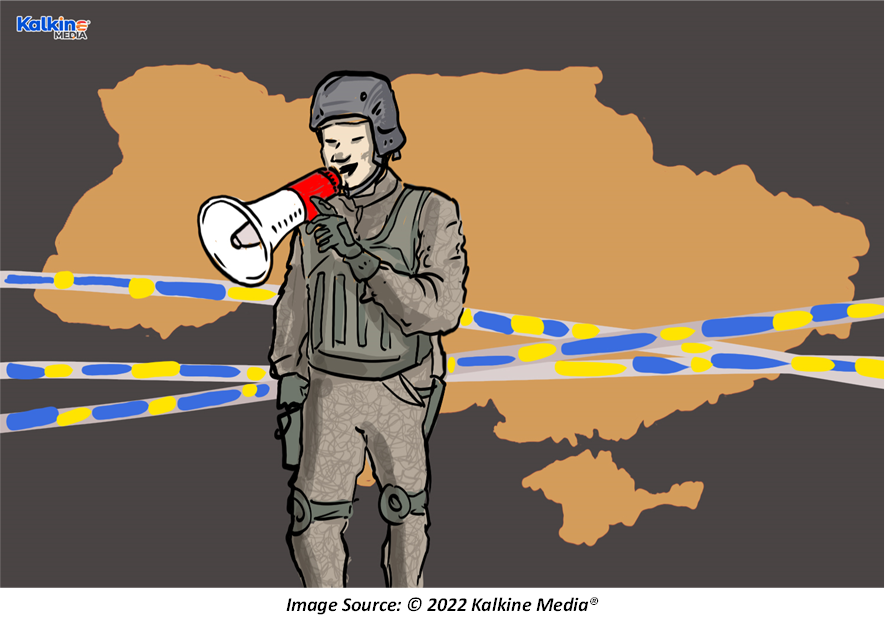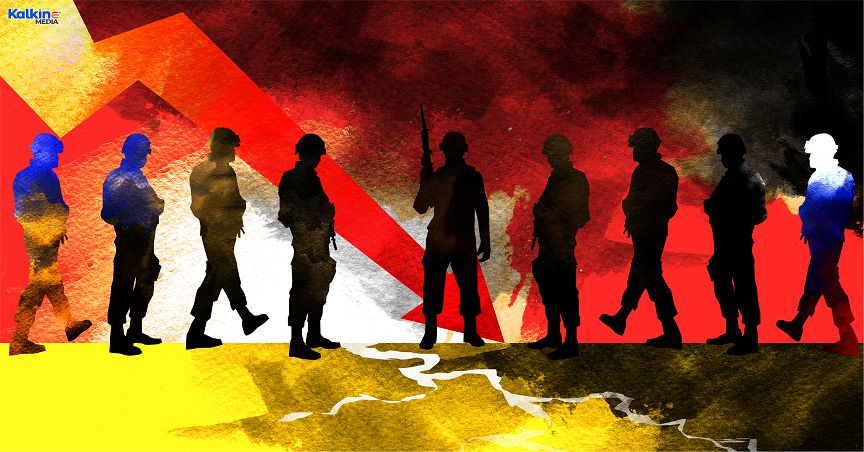Highlights
- Russian military forces recently entered Ukraine armed with missiles and artillery.
- NATO has agreed to stand in solidarity with Ukraine.
- Since Ukraine is technically not a member of NATO, its involvement in the issue has raised some conflicts.
The Russia-Ukraine conflict has transcended into a bleak affair, sending shockwaves across the globe owing to its possible detrimental impacts. Major world leaders and organisations seem to have become incapacitated against Russian President Vladimir Putin’s tenacious decision to “demilitarise” Ukraine. Recently, when Russian military forces entered Ukraine armed with missiles and artillery, world leaders were left with little choice but to observe its aftermath from afar.
Meanwhile, hours after this attack, officials of NATO (North Atlantic Treaty Organization) assembled for an emergency meeting. NATO’s involvement in these developments has been a conflicting issue.
NATO has expressed its solidarity with the people of Ukraine and has stated that it will do all it takes to protect Ukraine, which it calls an “ally”. While most countries are extending their support to Ukraine, this show of empathy from NATO has been the subject of major scrutiny. To better understand why, here is a closer look at NATO and how it is linked to Ukraine.
ALSO READ: Decoding the World Development Report 2022
What is NATO?
NATO is an intergovernmental military alliance between 30 countries, comprising 28 from Europe and 2 from North America. Some of the organisation’s members include the United States, United Kingdom, France, Belgium, and Canada. However, when it comes to Ukraine, it has long insisted on becoming a member of NATO, with many still unclear whether the country is a part of NATO or not.
NATO’s role essentially lies in the security and protection of its member nations from any unprecedented attacks and breaches. The forced entry of Russian troops into Ukraine was a direct violation of NATO’s principles and thus, demanded action from the organisation. In a nutshell, the Russian invasion of Ukraine is exactly the kind of event NATO was formed to protect against.
DO NOT MISS: What does Russia-Ukraine conflict mean for world economy?
Where does this leave Ukraine now?
The ambiguity regarding Ukraine being a member nation has sparked debates about the right step to take in the coming days. Being a member of NATO, the United States holds the right to get involved in the heated turmoil between the two countries. However, since Ukraine is not technically a member of NATO, then acting on behalf of a non-member country seems like breaking some set boundaries.

NATO believes that if a non-member nation attacks a member nation, then it will be treated as an attack on each NATO country. However, allowing countries such as the United States to take decisions on what is to be done to protect the people of Ukraine may seem confusing to some. But when it comes to international peace preservation, countries cannot simply choose to sit idle.
Another fear stemming from NATO’s involvement is that provoking forces across the globe can encourage many countries to indulge in a war, which can lead to a far more perplexing and destructive scenario. Thus, any military action on Russia from NATO might quickly transcend into a series of unfavourable events.
Russia and its unacceptance
Russian President Putin has expressed his disapproval on the possibility of Ukraine becoming a member nation of NATO. Russia is of the opinion that NATO’s expansion across Europe is “threatening” due to the presence of the United States as an ally. This has made the role of NATO in the Russia-Ukraine conflict more central.
Trump’s Two-Cents on Russia-Ukraine Matter || Trending News
Additionally, some experts believe that Russia’s war with Ukraine has little to do with NATO and its expansion across Europe. Essentially, capturing the sovereign and democratic country of Ukraine can allow Russia to prevent the nation from becoming an independent power, with international grade military and artillery. Thus, NATO’S interference may not necessarily bring the desired results.
Bottom Line
It is no surprise that a political war always results in the suffering of citizens, who have little to do with the spat in the first place. The actions of Russia have already caused a number of casualties, pointing towards a large-scale catastrophe that may take place if more nations retaliate. However, at this stage, it seems difficult to examine which strategy is best for all countries.
ALSO READ: Can Russia’s attack on Ukraine impact Canada's economy & trade?



